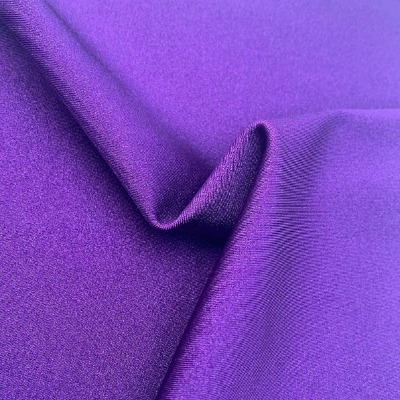For 15+ years, Haining Yitai Knitting Co., Ltd has been at the forefront of high-performance knitting fabric innovation. As a leading swimwear fabric supplier, we combine German knitting technology with OEKO-TEX certified production to deliver fabrics that outperform in:
- Chlorine resistance (200+ pool exposures)
- UV protection (UPF 50+)
- Eco-conscious production (GRS-certified rPET options)
Our R&D Difference:
- 15-person textile engineer team developing proprietary blends
- In-house dyeing & finishing facility for quality control
- Global compliance: OEKO-TEX, REACH, GRS standards
Engineered for Performance: Our Swimwear Fabric Technology
1. Chlorine-Resistant Polyester (CRP Series)
- 3x longer lifespan than standard nylon (ISO 105-E03 tested)
- ColorLock treatment prevents fading in saltwater
- Available weights: 120-200 GSM
"After switching to Yitai's CRP fabric, our swimwear return rates dropped by 40%."
— Luna Swim (Italian beachwear brand)
2. EcoSwim™ Recycled Polyester
| Specification |
Benefit |
| 100% post-consumer PET bottles |
Reduces ocean plastic |
| Closed-loop water recycling |
Saves 3,000L water per roll |
| GRS & OEKO-TEX certified |
Meets EU eco-label standards |
3. Competition-Grade Fabric
- Hydrophobic coating reduces drag by 15%
- 4-way stretch with 20% spandex
- Ideal for: Speedo®-style racing suits
Sustainable Manufacturing Process
At our 22,000㎡ facility in Haining, we've implemented:
Green Energy
- 30% solar-powered production
Water Conservation
- Zero-discharge dyeing technology
Circular Economy
- Fabric scraps recycled into new yarn
Certifications:
OEKO-TEX | GRS | REACH
Why Partner With Yitai?
For Brands That Refuse to Compromise:
- Small MOQs (100 yards for testing)
- 48-hour sample service
- Custom development (prints, weights, finishes)
- 1-on-1 technical support
Global Supply Chain:
- 15+ years exporting to EU/US/AU
- DDP shipping solutions
Get Your Free Swatch Kit
Includes:
- CRP Chlorine-Resistant Sample
- EcoSwim™ Recycled Fabric
- Competition-Grade High-Shine
Email: [email protected]
Phone: +0086 198 4426 7532
web: yitaifabrics.com

73%-Nylon 27%-Spandex Weight-243 Gsm Width-156cm PURPLE SHINY FABRIC